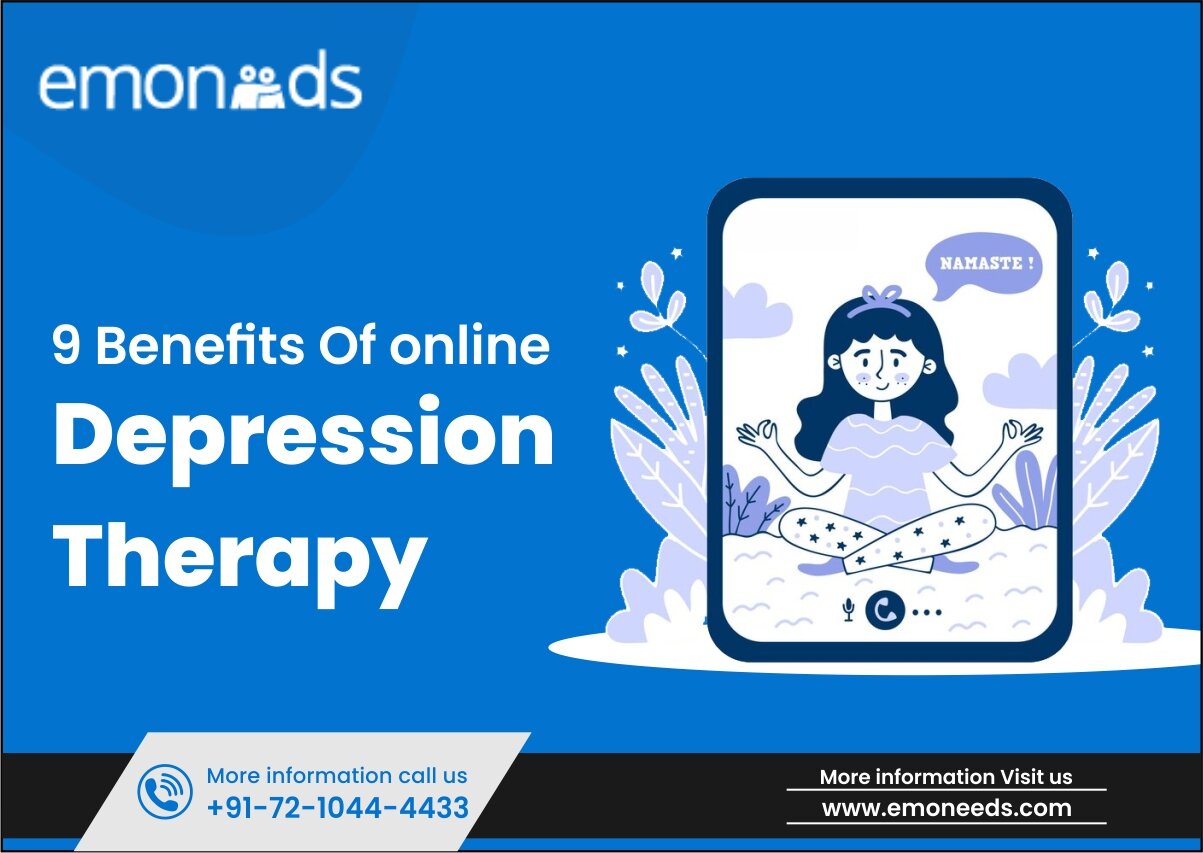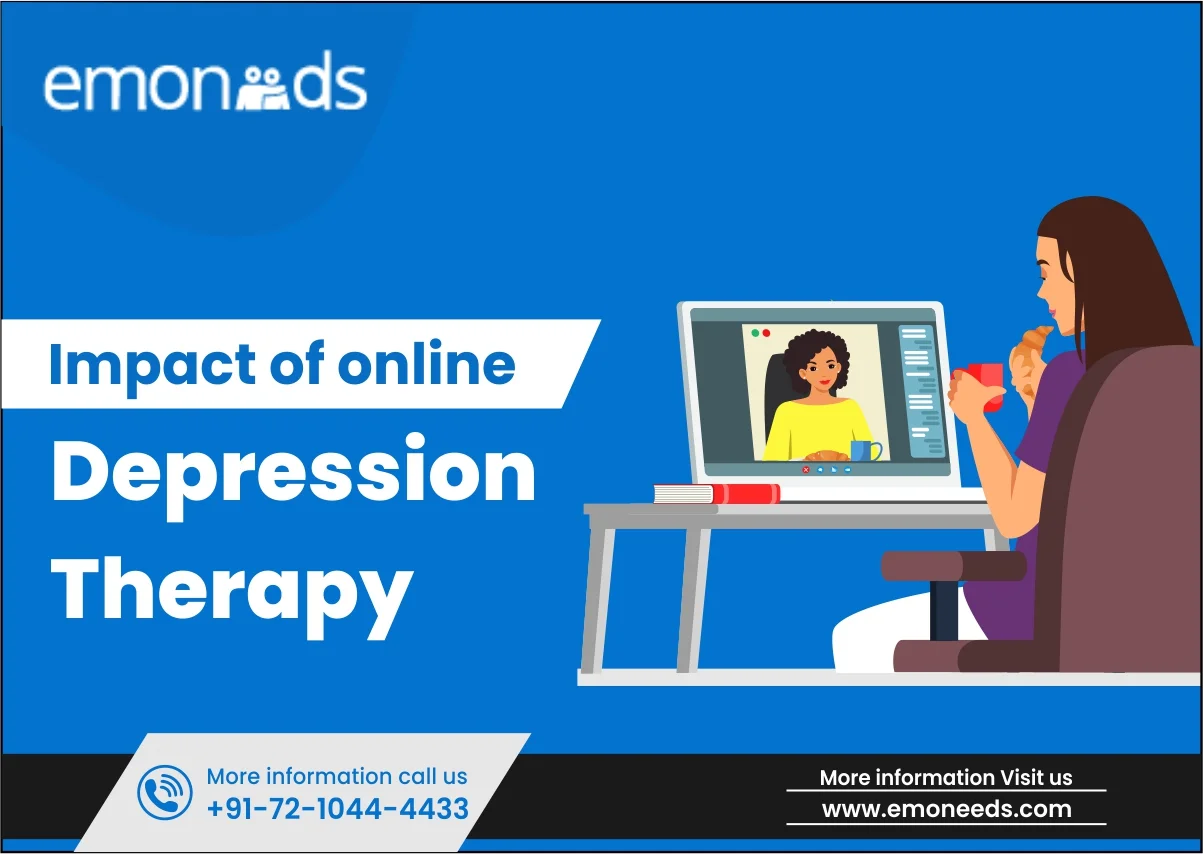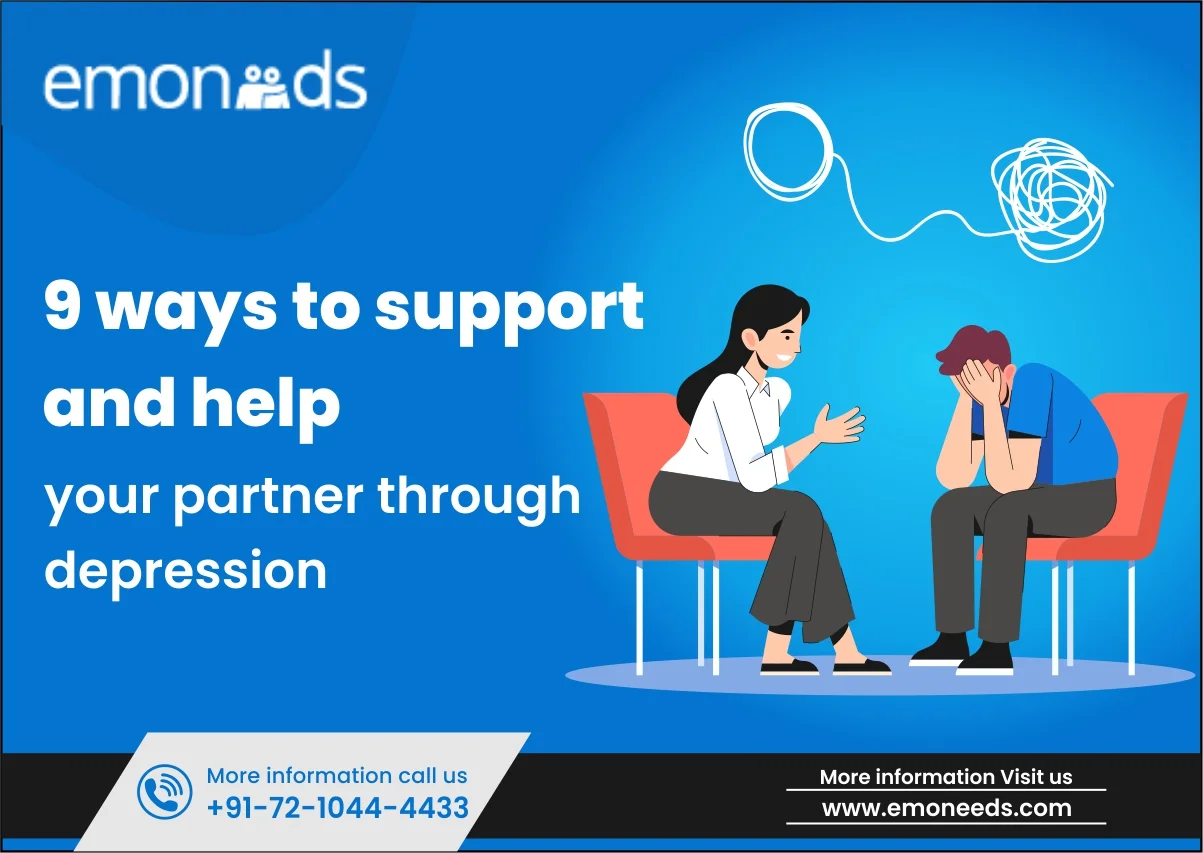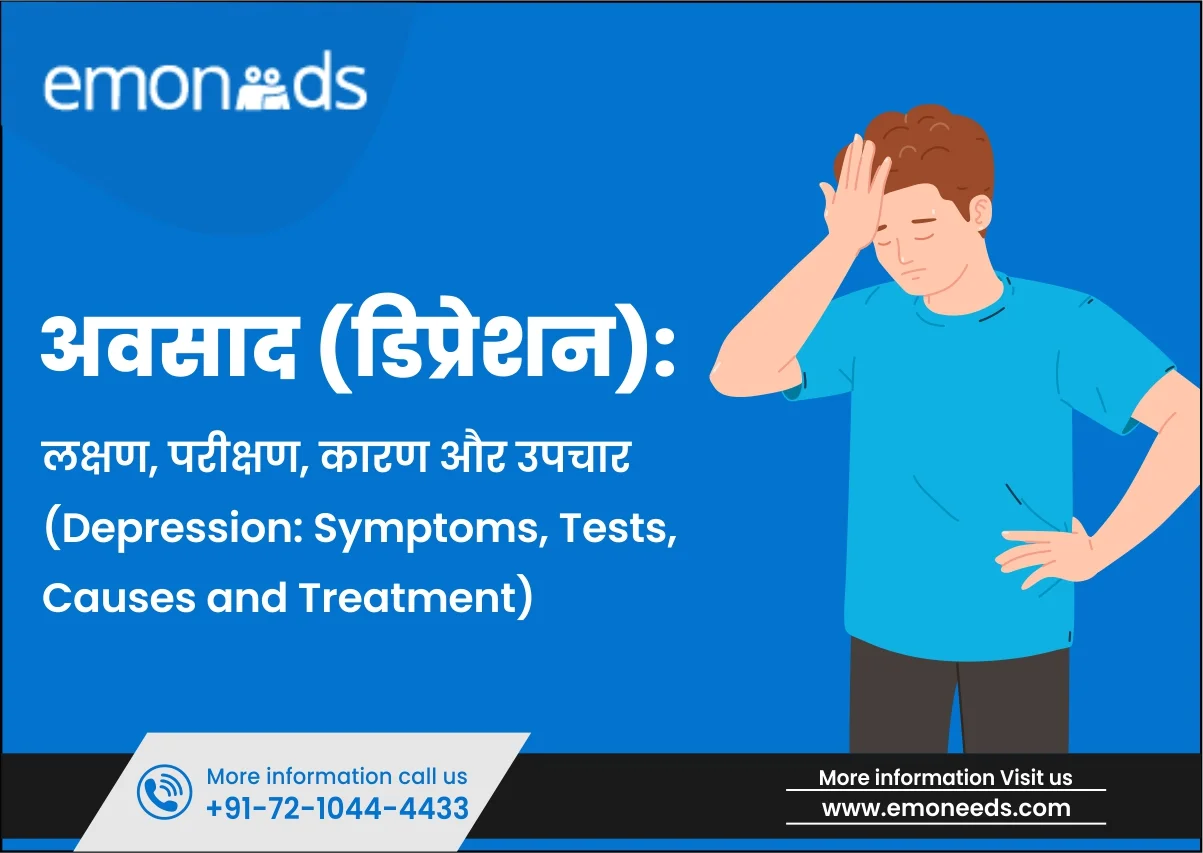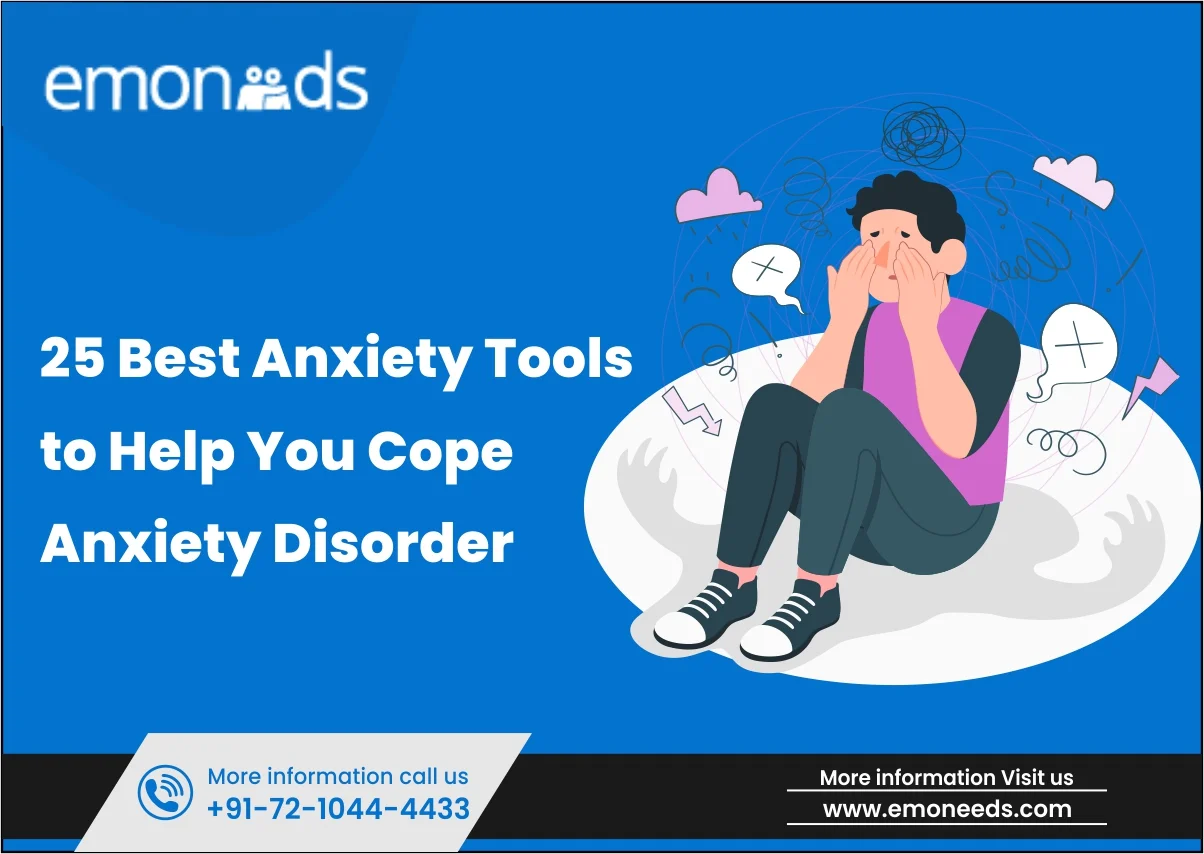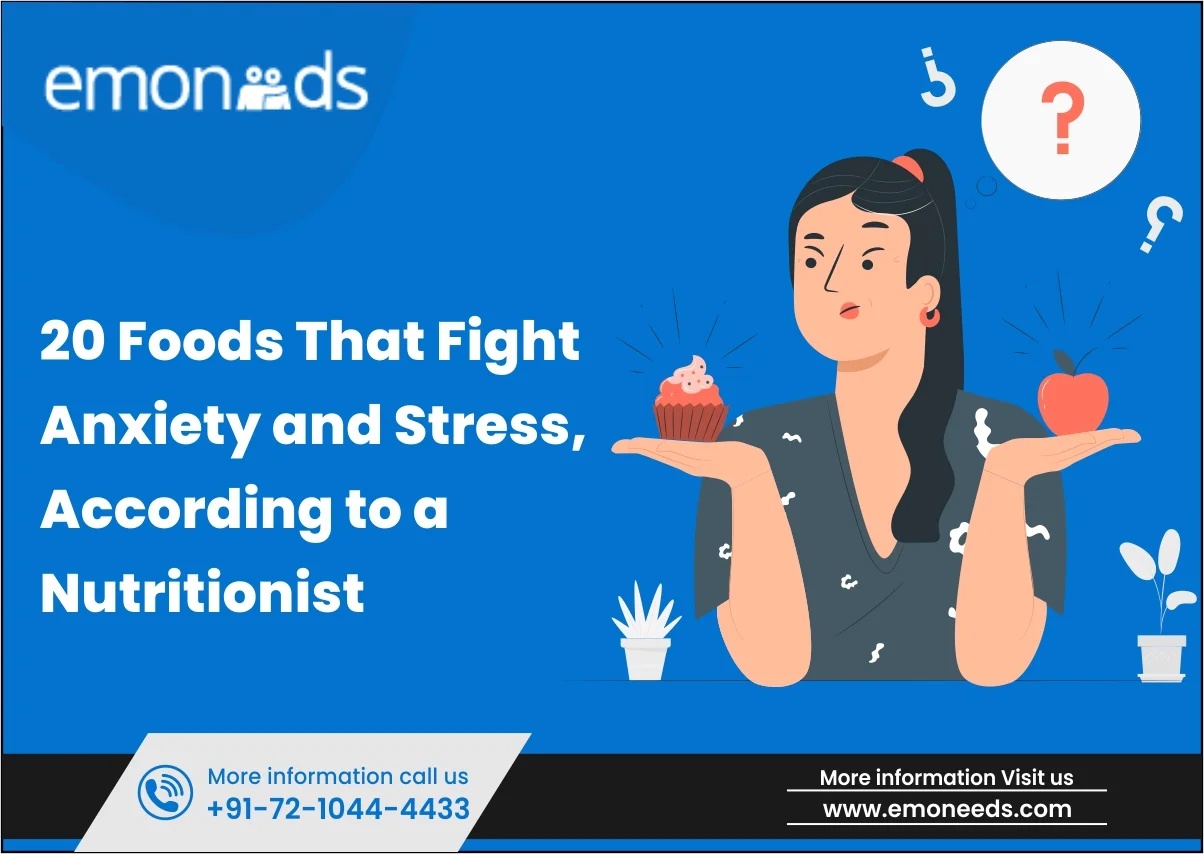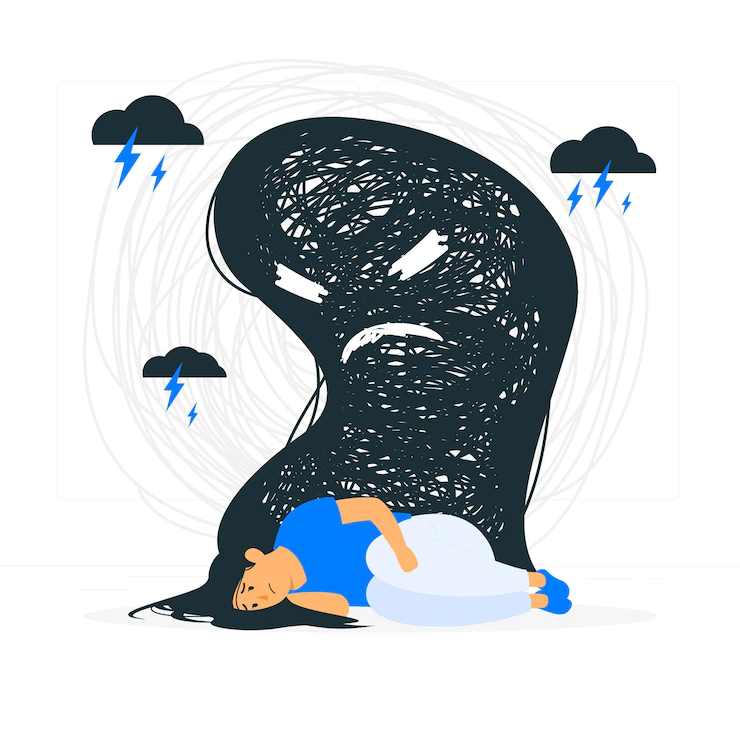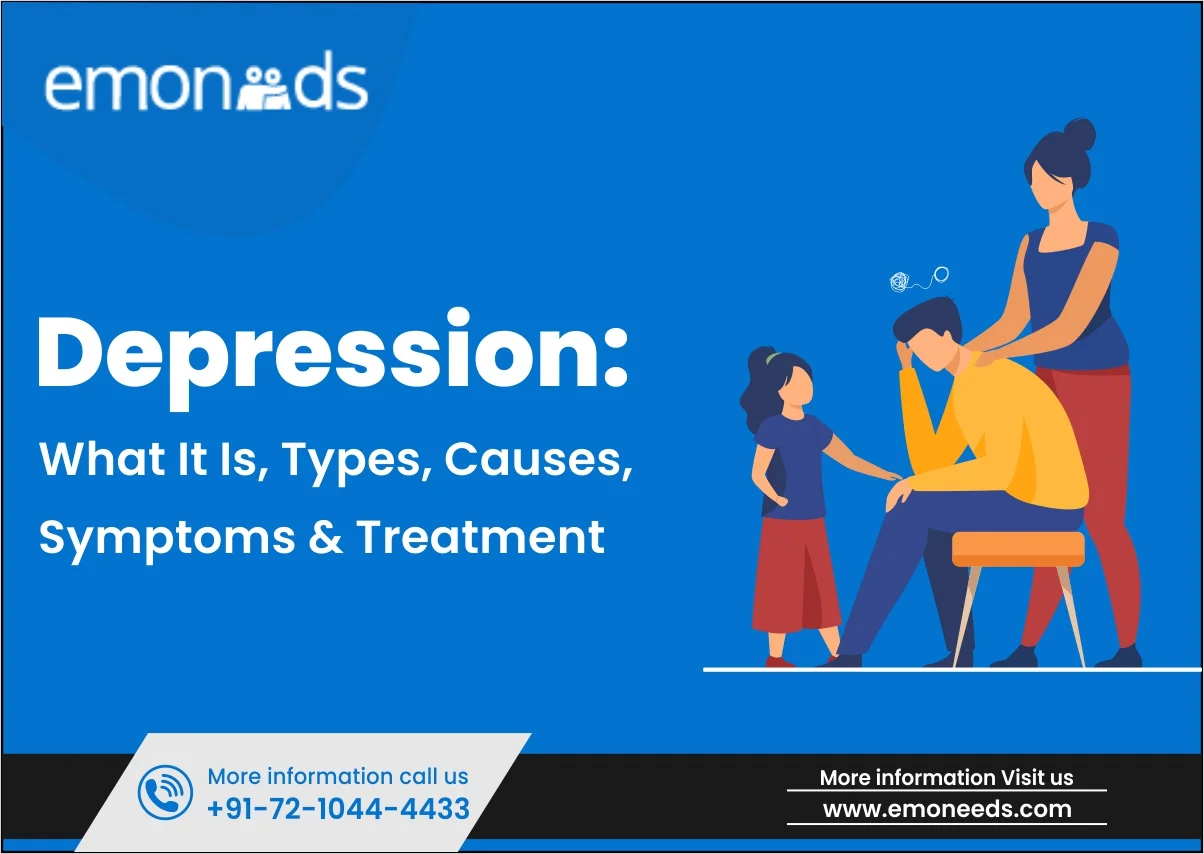
Depression is a silent battle that millions of people around the world face every day. It’s not just a passing case of the blues or feeling down for a little while; it’s a pervasive mental health disorder that can deeply affect a person’s life. In this blog, we’ll delve into the intricacies of depression, exploring its various types, underlying causes, common symptoms, and available treatments. If you or someone you know is struggling with depression, it’s crucial to understand this condition to seek the right help and support.
What is Depression?
Depression is more than just feeling sad or low. It’s a mental health disorder characterized by persistent feelings of sadness, hopelessness, and a lack of interest or pleasure in activities that one once enjoyed. It’s like a dark cloud that lingers over your head, making it difficult to see the silver lining in life’s moments.
Imagine waking up every day with a heavy heart, feeling like you’re carrying a burden that nobody else can see. Depression isn’t something you can just “snap out of” or overcome with willpower. It’s a complex condition that often requires professional intervention and support.
Types of Depression
Depression manifests in various forms, each with its unique characteristics and triggers. Here are some common types of depression:
Major Depressive Disorder (MDD)
This is what most people typically think of when they hear “depression.” It involves persistent low mood, loss of interest in activities, and physical symptoms like changes in appetite and sleep patterns. MDD can be debilitating and may require long-term treatment.
Persistent Depressive Disorder (PDD)
Also known as dysthymia, this form of depression is characterized by a chronic, low-level sadness that lasts for two years or more. It may not be as intense as MDD, but it can still significantly impact a person’s quality of life.
Bipolar Disorder
People with bipolar disorder experience extreme mood swings, including periods of intense elation (mania) and deep depression. These mood shifts can be disruptive and challenging to manage.
Seasonal Affective Disorder (SAD)
SAD typically occurs during specific seasons, most commonly in the winter months when there’s less natural sunlight. It’s characterized by depression symptoms that come and go with the seasons.
Understanding the specific type of depression someone is dealing with is crucial for tailoring the right treatment approach.
Causes of Depression
The exact causes of depression are still not fully understood. It’s likely a combination of genetic, biological, environmental, and psychological factors that contribute to its development. Here are some key factors to consider:
- Genetics: If you have a family history of depression, you may be at a higher risk of developing it yourself. Certain genes may predispose individuals to the condition.
- Brain Chemistry: Neurotransmitters, which are chemicals that transmit signals in the brain, play a crucial role in regulating mood. An imbalance in these neurotransmitters, such as serotonin and dopamine, can contribute to depression.
- Life Events and Stress: Traumatic or distressing life events, like the loss of a loved one, a breakup, financial difficulties, or job loss, can trigger depression. Chronic stress can also wear down a person’s resilience over time.
- Physical Health: Chronic illnesses, hormonal imbalances, and certain medications can increase the risk of depression.
- Personality and Temperament: Some people may be more prone to depression due to their personality traits, such as being overly self-critical or pessimistic.
- Childhood Trauma: Adverse experiences during childhood, such as abuse or neglect, can have lasting effects on mental health and increase the risk of depression later in life.
Understanding these factors can help individuals and healthcare professionals identify potential triggers and develop strategies for prevention and treatment.
Symptoms of Depression
Recognizing the symptoms of depression is the first step in seeking help. These symptoms can vary from person to person, but common signs include:
- Persistent sadness or low mood: Feeling down most of the day, nearly every day.
- Loss of interest or pleasure: Losing interest in activities you used to enjoy.
- Changes in appetite or weight: Significant weight loss or gain due to changes in eating habits.
- Sleep disturbances: Insomnia or oversleeping.
- Fatigue: A constant feeling of tiredness and low energy.
- Difficulty concentrating: Trouble focusing, making decisions, or remembering things.
- Feelings of worthlessness or guilt: Excessive self-blame and negative self-talk.
- Physical symptoms: Unexplained aches and pains, headaches, or digestive problems.
- Social withdrawal: Isolating oneself from friends and family.
If you or someone you know is experiencing several of these symptoms for an extended period, it’s essential to seek professional help.
Seeking Help and Treatment
Depression is a treatable condition, and seeking help is a sign of strength, not weakness. There are various treatment options available:
Therapy
Therapy, particularly cognitive-behavioral therapy (CBT), is a highly regarded approach in the treatment of depression. It involves working with a trained therapist who assists you in identifying and addressing the negative thought patterns that often accompany depression.
Through CBT, you acquire valuable tools to challenge and reframe these thought patterns, fostering healthier perspectives. This therapy equips you with practical strategies to navigate life’s difficulties more effectively.
Medication
In certain cases, medication may be recommended by a psychiatrist to help stabilize mood. Antidepressants are designed to balance neurotransmitters responsible for emotional regulation.
It’s important to approach medication as a complement to therapy and other strategies. Collaborating closely with a healthcare professional ensures that the medication aligns with your specific needs and is monitored for effectiveness.
Lifestyle Changes
Prioritizing physical health is fundamental. Regular exercise, a balanced diet, and sufficient sleep all contribute to enhancing both physical and mental well-being. Exercise, in particular, can stimulate the release of mood-boosting chemicals in the brain.
Adequate sleep is the cornerstone of mental and emotional stability. It rejuvenates the mind and body, improving your ability to manage stress. Mindfulness practices, such as meditation, can provide a sense of calm and resilience amidst life’s challenges.
Support Groups
Depression often leads to isolation, which can exacerbate the condition. Support groups offer a valuable lifeline. Think of them as a collective of individuals facing similar struggles, offering a safe space to share experiences.
Joining a support group can provide a profound sense of belonging and understanding. It reinforces the fact that you’re not alone in your journey. Together, you can offer mutual support, empathy, and valuable insights.
It’s important to remember that treatment is not one-size-fits-all. What works best may vary from person to person, and a combination of treatments may be necessary.
Coping Strategies and Support
While professional treatment is crucial, there are also strategies individuals can use to cope with depression:
Establish a Daily Routine
Creating a structured daily schedule can provide a stable framework for your life. This routine can encompass waking up and going to bed at consistent times, planning regular meals, and scheduling activities or tasks throughout the day. A routine can offer a sense of predictability and control, which is valuable when facing the unpredictability of depression.
Prioritize Self-Care
Self-care activities are instrumental in nurturing your mental and emotional well-being. Engaging in activities that bring you joy and relaxation is not indulgent; it’s essential for maintaining balance. These activities can include hobbies, mindfulness practices, or simply setting aside time for rest and recuperation. Self-care is a vital investment in your mental health.
Challenge Negative Thought Patterns
Depression often involves persistent negative thought patterns. Learning to identify and challenge these thoughts is a powerful skill. Consider keeping a journal to record your thoughts and feelings. By examining them objectively, you can gain insight into their irrational or distorted nature. With guidance from a therapist, you can develop techniques to reframe negative thoughts with more rational and positive alternatives.
Practice Gratitude
Focusing on the positive aspects of your life and practicing gratitude can help shift your perspective away from the negative aspects of depression. Regularly acknowledging and appreciating the things you are grateful for can foster a more optimistic outlook and improve your overall mood.
Set Boundaries
Establishing healthy boundaries is essential for protecting your emotional well-being. Learn to say “no” when necessary and prioritize your own needs. Overcommitting or feeling pressured to meet others’ expectations can lead to increased stress and exacerbate depressive symptoms. It’s important to preserve your mental and emotional energy.
Why Choose Emoneeds?
When it comes to managing depression, seeking the right support is paramount, and Emoneeds offers a compelling solution. With a commitment to your well-being, Emoneeds provides convenient access to a network of experienced mental health professionals who can tailor their expertise to your unique needs. Whether you’re looking for therapy, resources, or a supportive community, Emoneeds has it all, right at your fingertips. The platform’s user-friendly interface, confidentiality, and flexibility make it a trustworthy ally in your journey toward healing and recovery. Emoneeds is more than just a platform; it’s a lifeline to a brighter, emotionally healthier future.
Conclusion
Depression is a complex and challenging condition, but it’s essential to remember that help and support are available. By understanding the types, causes, and symptoms of depression, we can better equip ourselves to seek the appropriate treatment and provide empathy and support to those who need it. Let’s work together to break the stigma surrounding mental health and create a more compassionate world for all.
If you or someone you know is struggling with depression, don’t hesitate to reach out to a mental health professional. You don’t have to face this battle alone. There is hope, and there is help.
